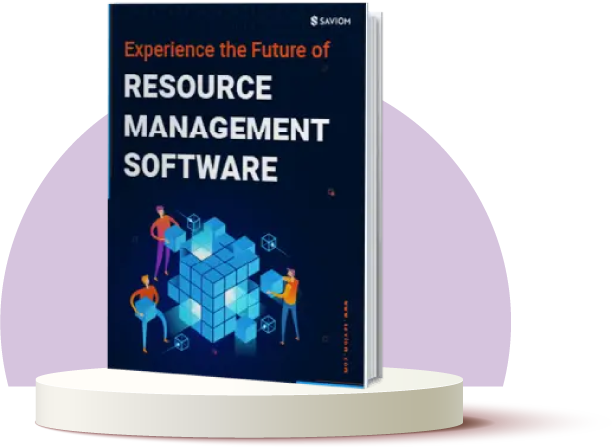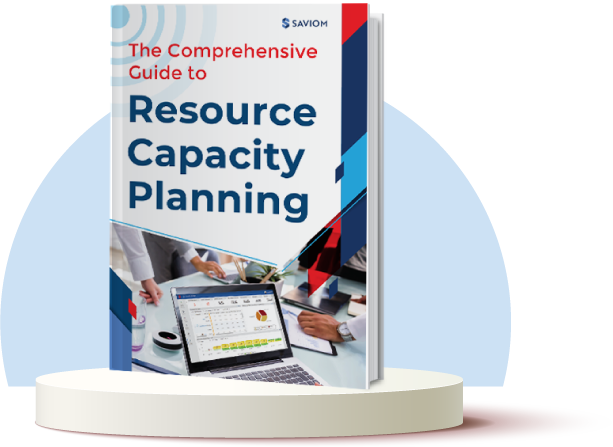“The global accounting & auditing market is anticipated to progress at a CAGR of 5.7% to reach US$ 379 billion by the end of 2032.” – FACT.MR
The above growth is attributed to several macroeconomic factors, such as the increasing complexity of tax regulations, globalization, increased financial frauds and risk awareness, etc. Therefore, there is a growing demand for audit and accounting services as companies worldwide strive to protect their profit margins and stay ahead of the competition.
However, audit & accounting firms face numerous resourcing challenges, such as skill gaps, inability to meet seasonal demands, unplanned attrition, etc. That’s why effective resource planning is the need of the hour to future-proof and optimize the audit and accounting workforce.
This blog discusses the various steps you can implement to create an efficient resource planning in audit and accounting firms.
But first, let’s understand the benefits.
Significance of resource planning in the audit and accounting sector
Resources are the crux of audit and accounting service firms since they generate revenue by charging their clients for the consultants’ expertise and time. Therefore, firms need an efficient resource plan to maximize the billable utilization of their skilled personnel and improve profitability.
Since this sector experiences seasonal fluctuations, resource planning enables firms to meet the sudden rise and fall in demand by comparing the project requirements against capacity. Additionally, it helps bridge the skill gaps in advance, ensuring consultants’ availability before the project’s onset, thus eliminating last-minute firefighting.
In addition, efficient resource planning helps managers create the right mix of permanent and contingent audit and accounting personnel. For example, an upcoming assignment requires a forensic auditor to evaluate a firm’s financial records and collect evidence for legal proceedings. With efficient resource planning, managers can easily deploy a contingent forensic auditor depending on the duration of the assignment, minimizing project resourcing costs.
Overall, resource planning is critical for audit and accounting firms to identify and allocate competent personnel to projects at the right time and cost and deliver high-quality services to clients. In addition, it helps firms to stay competitive in a rapidly changing market and adapt to new challenges and opportunities.
Given the significance of resource planning in the accounting and auditing industry, the following are the best strategies to make it efficient.
Best practices to implement a resource plan in audit and accounting firms
Robust resource planning is the backbone of every project since it redefines business efficiency and helps unlock the workforce’s full potential.
Here’s how you can implement an effective resource plan.
Forecast and bridge capacity gaps of consultants for pipeline assignments
Most accounting/audit projects have a shorter timeline, and usually, practitioners work on multiple projects simultaneously. Therefore, consulting managers in audit and accounting firms must plan the pipeline assignments by analyzing the resource requirements. They must also implement suitable measures proactively to bridge the capacity vs. demand gap.
For example, a pipeline audit assignment needs five auditors to complete the tasks successfully. If the manager has ten available auditors, they can bring forward other projects for the extra five auditors or sell their capacity at a discounted rate. Alternatively, if they only have three auditors, a shortfall of two employees can be resolved with internal channels like implementing out rotation and backfill strategy or training/upskilling. If needed, managers can also request HR to initiate project-specific or skill-based hiring to avoid last-minute firefighting.
Read More: Resource Forecasting Guide for Project Managers
Identify and allocate cost-effective audit/accounting personnel to projects
Since the accounting sector often utilizes high-cost specialized resources such as actuaries and tax analysts, it is significant to consider the overall resourcing budget while planning to protect the profit margins. In addition, resource planning enables firms to identify cost-effective auditors/accountants with skills matching project requirements once they receive a resource request.
For example- instead of assigning a senior advisory lead to evaluate business transactions, managers can identify and allocate a skilled junior counterpart for the same. It will significantly reduce the resourcing cost, ensuring successful project delivery within the budget. In addition, they should have a sufficient lead time for carrying out planned hiring activities and create an optimum resource mix preventing budget overruns.
Create the right mix of permanent and contingent audit/accounting staff
The demands for specific skills, such as tax advisory, consultants, etc., witness a surge during the financial year-end. Based on the project nature, firms can form a blended workforce to meet these sudden peaks. During this period, contingent workforce can provide additional support to permanent resources or offer specialized services, allowing firms to fulfill client demands more effectively.
For example, an auditing/accounting firm bags a short-term project on filing client’s tax returns and forms. Here, the managers can allocate a freelancer tax analyst and complete the project within the budget. On the other hand, firms can recruit full-time employees for long-term projects, such as the annual auditing for an insurance company for the next 7 years. This will enable organizations to achieve their goals by keeping costs in check, boosting profitability and sustainability.
Read More: What is a Contingent Workforce and Why an Organization Needs It
Set utilization targets for accounting consultants and track them periodically
As mentioned above, audit and accounting firms usually depend on external and internal resources for project delivery. However, if the utilization targets for the accounting employees are not well-defined, it creates operational inefficiencies and low productivity. Therefore, firms need to set utilization targets for permanent and contingent staff to ensure maximum billability.
For instance, the utilization target of permanent consultants can be set around 70 – 80 % of their capacity so that they can be involved in billable and other important non-billable tasks. On the contrary, an on-demand resource’s utilization rate can be set close to 100% because they are usually hired to perform a specialized function for the short term. These measures ensure that both internal and on-demand audit and accounting staff are optimally utilized. In addition, managers should track their utilization levels periodically and implement measures to prevent under/over-utilization.
Implement training and upskilling programs on a regular basis
The rapid emergence of technologies, such as AI, ML, Blockchain, etc., has made it mandatory for accounts/auditors to stay abreast with the latest skills and technology.
A survey reveals that “57% of accountants find technology literacy the most critical additional skill for future employees in this field.”
For this, accounting managers can formulate several training/upskilling programs, IDPs, etc., to align the workforce’s skills with the latest trends. For instance, CAs can be trained in data analytics, which will help them generate financial reports quickly and accurately using multiple data like revenue, expenses, and account budgets.
They can also implement other learning methods, such as peer-to-peer coaching, job shadowing, etc., for the audit and accounting staff. It will prepare them to take up multi-faceted projects in the future and diversify their portfolios. Further, these initiatives will help bridge existing skill gaps, and improve performance, enabling the firms to stay relevant in the digital age.
Read More: How Can Retraining/Upskilling Future-Proof Your Workforce?
Facilitate succession planning for critical consultants.
Research reveals- 94 percent of employers report that succession plan has a positive impact on their employees’ engagement.
If critical resources, such as senior auditors, accounts officers, partners, etc., suddenly retire or resign, the projects can derail in the absence of succession planning. It, in turn, can cause revenue losses and negatively impact client experiences for accounting service organizations. To avert this situation, firms can leverage effective resource planning to review key accounting/auditing roles and resources.
Consulting managers can also track the performance of every consultant to identify the ones to be considered for promotion to senior/strategic positions. Moreover, they can also upskill and train the audit and accounting staff to take up higher roles. In addition, it enhances the level of engagement of audit and accounting personnel since they are more focused and eager to take on critical responsibilities. This way, effective succession planning ensures smooth role transition and business continuation.
Empower auditors/accountants to choose the project of their interest
A study reveals- “1 in 3 professionals reveal that boredom is the primary reason to leave their jobs.”
The above stats hold true for the audit and accounting sectors as well. Most accounting professionals work on similar projects that become monotonous over time, affecting their engagement and productivity. To avoid this, managers can give employees the choice to work on assignments matching their interests by publishing open positions with relevant project details periodically.
This would enable audit and accounting employees to show interest and apply for suitable open positions. Managers can then choose the best-fit consultants for the projects. By working on the projects of their interest, professionals will be more motivated, enhancing their performance. Furthermore, it will increase autonomy and help with their career trajectory, resulting in improved retention.
Read More: How Can Employee Empowerment Enhance Productivity?
Now that the strategies are understood, let’s know how an advanced resource management solution will help streamline the resource planning process.
How can a modern ERM tool streamline resource planning in audit and accounting firms?
Advanced resource management software provides efficient resource planning capabilities that help audit and accounting firms utilize their resources optimally.
Here’s how-
- It offers 360-degree visibility into audit and accounting projects/non-project activities such as BAU/admin, leaves, etc. Besides, the software helps maintain up-to-date competency and skill information that facilitates the competent allocation of consultants.
- The multidimensional sorting feature, along with advanced filters, helps managers uniformly distribute the employees according to the work requirements.
- Moreover, the forecast vs. actual and utilization reports helps accounting supervisors implement corrective measures and eliminate under/over utilization. It also helps them mobilize skilled accountants from non-billable or admin/BAU work to billable or high-priority projects.
- The modeling and simulation technique enables accounting managers to create and compare various project scenarios and determine the best-fit resource plan.
- The accounting/audit managers can use the open seat feature of the tool to publish various open positions. It will empower auditors/accountants to choose projects of their interest, thus improving engagement and productivity.
- Further, the tool’s collaboration feature helps managers share the lesson-learned reports after completing the project. This report can be referred to by others while working on similar audit/accounting projects and improve resource planning and cost estimations.
This way, modern resource management software can help streamline resource planning in audit and accounting firms.
The Bottom Line
“Planning is bringing the future into the present so that you can do something about it now.” ― Alan Lakein, author
Rightly said, it is essential for audit and accounting firms to create an effective resource plan. It will help unleash the maximum potential of resources and increase their productivity and engagement. However, it is only possible when organizations use robust ERM software to identify and mitigate bottlenecks early. It will help optimize and futureproof the audit & accounting workforce against market volatility, ensuring profitability and sustainability.
So, what’s your strategy to streamline your firm’s resource planning?
The SAVIOM Solution
SAVIOM is the market leader in offering the most powerful and configurable solution for managing your enterprise resources effectively and efficiently. With over 20 years of experience, this Australian-based MNC has created its global presence across 50 countries and helped more than 100 customers achieve their business goals. SAVIOM also has highly customizable products for project portfolio management, professional service automation, and workforce planning software based on business requirements.











